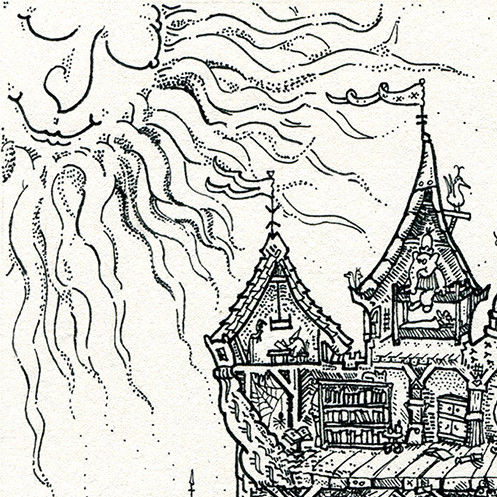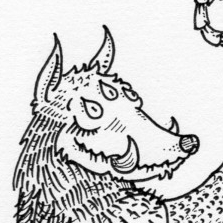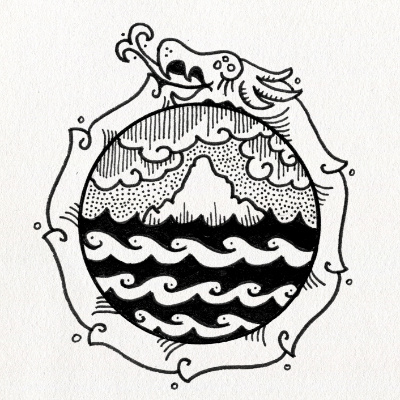

Chronicle of defeat
Words from the past
The Ruggolengt List is a collection of documents detailing the events surrounding the Battle of Ruggolengt.
Whatever aspects they may highlight or favor, historians agree that there was an excessive amount of bonking-on-heads going on at the time, and the footsoldiers’ growing disregard for the personal safety of nobles was really starting to take the fun out of combat*.

A lord in need, a battle gone wrong
In the year AK 516* a Gaagge of knights* travelling from Keyskamp to Wiellewortel was called upon by the Lord of Ankerlýk, Vatkop Skeeringge, to quell a revolt that had taken hold of his fiefdom. The host swiftly moved north along the winding paths that criss-cross the region.
Upon reaching the gentle Ruggolengt* plateau they were met by a shieldwall in disarray, flying banners they did not know. Thinking them to be the rebellious Ankerlýrres* they formed up and charged ahead, trampling the enemy under foot and emerging victorious after swift and decided battle! Alas, this enemy turned out to be a band of Leeuye raiders who had heard of the regime change across the bay and figured they’d partake in the chaos and drag some loot and prestige back home*.
When this finally dawned upon the chivalrous chums, it was already too late: suddenly they were set upon by devious warriors that had approached them during the preceding battle. The melee that followed had the now mostly dismounted* Knights defeated and running for the hills.
The dethroned Lord was caught by his tail and exiled to the sea. Whether he was ever heard from again, nobody cared to know…
Vatkop Skeeringge, the exiled wretch of Ankerlýk.
Penned pranks
The Writings were part of a short lived fad to record great deeds through written records. But truthfulness in writing also meant admitting to (proof of) defeat. Soon records were greatly exaggerated and even more fanciful and fantastic than even word-of-mouth and the practice soon fell in disuse.
All this writing and rewriting was too time consuming when you can just spin a fancy yarn and achieve the same effect. It also needs mention that many scribes started taking jabs at each-other, and some edited works contain more spam, taunts, disses and insults in the margins than they do actual useful information.
A place in history after all
Apart from the writings, the battle at Ruggolengt did become the central point of the Ruggolengt Krengge*: a set of sagas listing the deeds of all knights who fell at Ruggolengt. Some of them -like Golfmar Tingge- have great epistels centered on them, while others like Aaltegoon never amounted to much adventure anyway. All parts of the Krengge end in a similar vein: then he went to Ruggolengt and there his story endeth. It is precisely because of this violent demise that the Bosse storytellers embellished and beautified the lives of the fallen. Of course many tales are exaggerations: made up, copied from other sagas and altogether propped up to project/show a more fantastical and fun side to all this yucky violence.
The list
List of prominent Knights who partook & fell in the battle:
(the first 16 are the very ones pictured in the illustration)
- Rookkerys van Aatsel, trampled by own chicken.
- Kaarremongt uit Waalgge, pierced by pike.
- Wollerem Vriytwyn, beheaded by giant scissors.
- Lambolt van Kneedebol, skewered by bovine horn.
- Laagwin Kolderbrandt, nailed to a tree by cloud of arrows.
- Aaltegoon van Krasseleye, hit in the back with halberd.
- Persaal de Kwaakke, debeaked then cleaved by greatsword.
- Bolbaart Bollepluis, flattened between 2 tower shields.
- Gurrik van Laapsse, mistakenly(?) bonked on the head by own squire.
- Zweuverd Patteryk, also bonked on the head, not by mistake, and not by his own squire.
- Heellevant Wastten, clothing hook to the right eye.
- Waggolt Pisttenooft, accidentaly bonked himself on the head.
- Daf Polpeert, dragged into a puddle by chicken, drowned.
- Barsten de Wuttel, strangled with his own ears.
- Týg van Faffel, throat slit by sickle.
- Golfmar Tingge, stabbed with tiny dagger.
- Mannevaan van Raavverlengt, stoned by slinger.
- Salvyn van Dreksteedde, javelin through the gut.
- Quasteryn Quallers, stoned by slinger.
- Niefjan Plaudders, pierced by javelin.
- Biubbe Banfeert, stoned by slinger, thén pierced by javelin.
- Vollem ut Haltte, javelin to the face.
- Faavvegryn van Kwortel, strung up with rope and dragged about until death.
- Sfèng van Deeggem, inventively bludgeoned to death with various cooking utensils.
- Mirreq veng Grenýtte, axeblow to spine.
- Fertigger veng Straamondde, pierced by a dozen spears.
- Fjaaffer Kaallebos (grandfather of the generalissimo Kaallebos)*, fatal headtrauma (probably due to severe and repeated bonking on the head).
- Gwýjaan van Kaspen, accidentaly violently stabbed himself in the stomach while fleeing.

Notes
…fun out of combat — For the nobles, that is. The men-at-arms had a jolly good time.
AK — abbreviation for the Ankerlýk Calendar. In Bos each city has its own calendar, which usually starts counting from its founding.
Ruggolengt — meaning Ruggo’s Land, a small and barely inhabited vale close by the city of Ankerlýk. The terrain features a slightly elevated grassland plateau that offers an astonishing view of the entire Holttesee.
Between Ruggolengt and Ankerlýk lies Lagterppe, a low basin rich in clay and peat, but exceptionally prone to flooding. Ruggo is a mythical tribal leader, and the story goes that he was slain by queen Ludda and laid to rest in this very place. There are indeed some standing stones in the area.
Gaagge — meaning a ‘host’ or ‘band’, armored warriors travelling together, not necessarily on their way to conflict (eg. A questing band, diplomatic travellers, tax batallions, etc.)
The term may also be applied to refer to a knightly order in its entirety eg. Ýksgaagge (‘Order of the Oak’).
From English: gaggle, meaning ‘flock’, or ‘group’
Ankerlýrres — citizens of Ankerlýk
Leeuye — a city that lies opposite of Ankerlýk, across the Holttesee Bay. It’s an authoritarian place with harsh laws and a very tough judicial system. Fearing these repercussions, opportunists and shifty individuals would rather band together and go raiding outside the territory and return with their spoils from elsewhere. This way they are protected from outsiders by Leuuyetrangt (Leeuye Law), while not risking their heads at home either.
…dismounted — Dis-chickened would be a better term, they were riding giant hens after all.
Krengge — translates to ‘cycle’
From Dutch: kring, ‘circle’
Generallisimo Kaallebos — see The Battle of Kýsteen-Oonde






